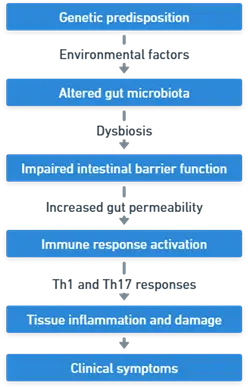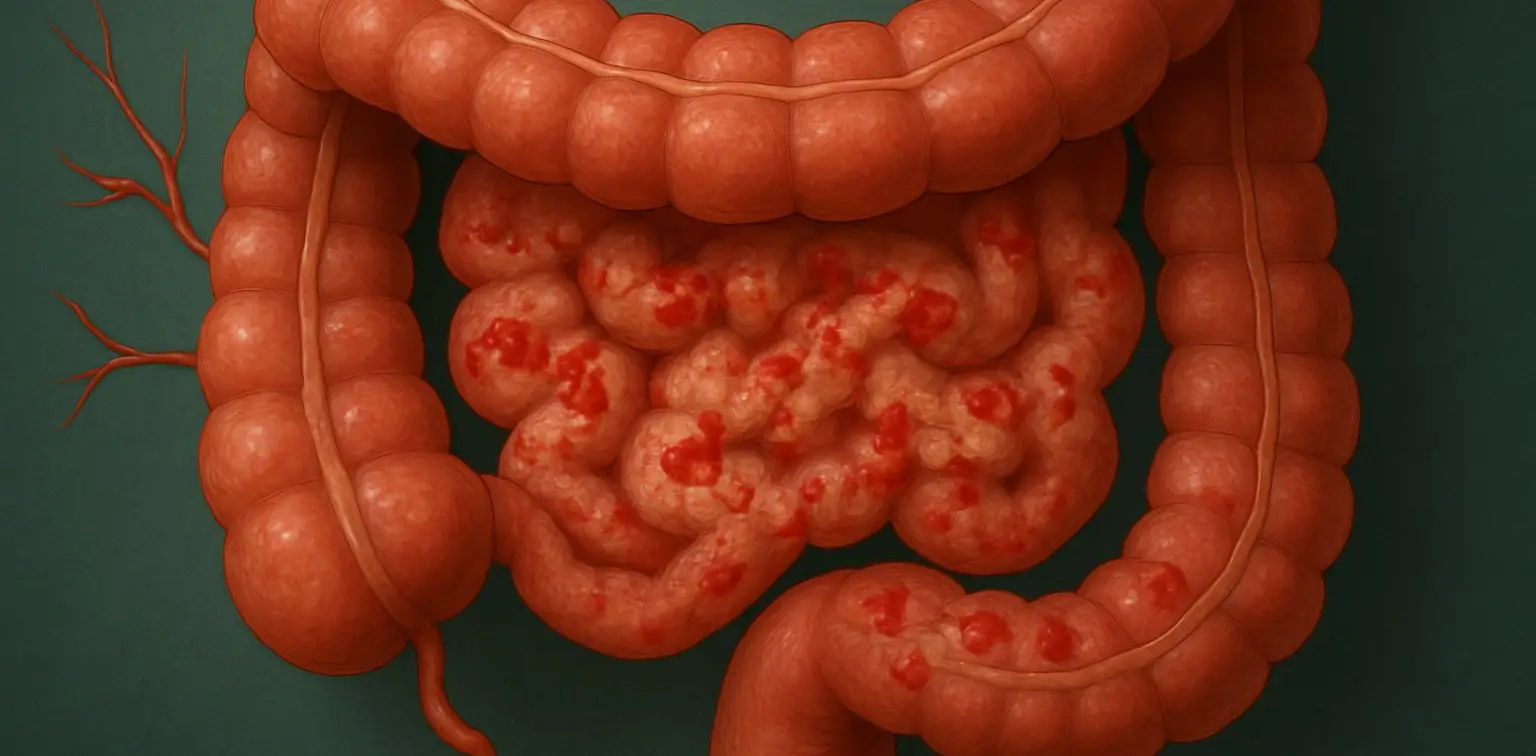- Inflammatory bowel diseases are chronic inflammatory conditions of the gastrointestinal tract.
- The two main types are Crohn’s disease and ulcerative colitis.
- Symptoms include abdominal pain, diarrhea, weight loss, and fatigue.
- The exact cause is unknown, but it involves a combination of genetic, environmental, and immune system factors.
Symptoms of Inflammatory bowel diseases:
- Common symptoms of IBD include:
- Abdominal pain
- Diarrhea
- Rectal bleeding
- Weight loss
- Fatigue
- Fever
Types of Inflammatory bowel diseases:
- There are two main types of IBD:
-
Crohn’s Disease
- Can affect any part of the gastrointestinal tract, from the mouth to the anus.
- Inflammation is transmural, involving all layers of the bowel wall.
-
Ulcerative Colitis
- Limited to the colon and rectum.
- Causes continuous inflammation and ulcers in the innermost layer of the intestinal lining.
-
Etiology
- The exact cause of IBD is unknown, but it is believed to result from a combination of factors:
- Genetic Predisposition: Certain genetic mutations affect immune regulation and gut barrier function.
- Abnormal Immune Response: An inappropriate immune reaction to intestinal microbiota.
- Environmental Factors: Diet, smoking (particularly in Crohn’s disease), and infections may trigger or exacerbate IBD.
Pathogenesis of Inflammatory Bowel Diseases (IBD)
- The development of IBD involves several interconnected mechanisms:
-
Genetic Factors
- Genetic Mutations: Multiple mutations, especially in the NOD2 gene, are linked to IBD.
- Impact: These mutations affect immune system regulation and the integrity of the gut barrier.
-
Immune System Dysregulation
- Immune Response: An abnormal response to gut microbiota leads to chronic inflammation.
- T-helper Cells: Th1, Th2, and Th17 cells play crucial roles in the inflammatory process.
-
Environmental Factors
- Triggers: Diet, smoking, and infections can initiate or worsen inflammation.
- Impact on Immunity: These factors may alter immune responses and gut microbiota balance.
-
Microbiota Imbalance (Dysbiosis)
- Dysbiosis: An imbalance in gut microbiota composition.
- Consequence: Contributes to aberrant immune responses and sustained inflammation.
-
Barrier Dysfunction
- Increased Permeability: A compromised intestinal barrier allows bacterial antigens to penetrate the mucosa.
- Inflammation Trigger: This penetration triggers and perpetuates the inflammatory response.
-

Treatment of Inflammatory bowel diseases:
- Treatment for IBD focuses on reducing inflammation and managing symptoms.
- Options include:
- Medication: Anti-inflammatory drugs, immunosuppressants, and biologic therapies.
- Nutrition: Dietary modifications and supplements to address malnutrition.
- Surgery: In severe cases, surgery may be necessary to remove damaged portions of the intestine.

